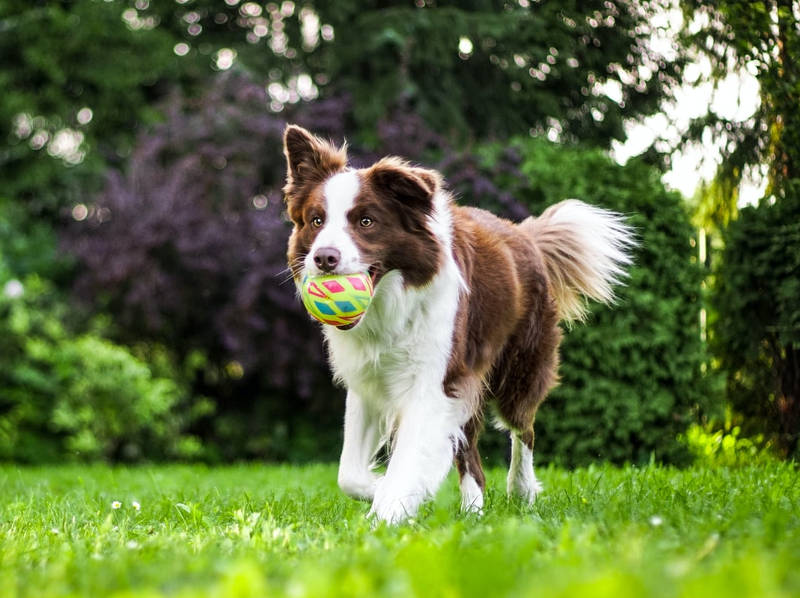Over the past few weeks, there have been several reports of a kennel cough outbreak in the Meaford area. Many local pet owners presume their pooch contracted the highly contagious virus after visiting the Beautiful Joe off-leash Dog Park, a popular spot for dog owners in Meaford, as it is one of the few places that permits leash-free play.
Meaford is not the only town to report new cases of Kennel Cough: Owen Sound, Thornbury, and Collingwood have all experienced a recent increase in confirmed infections.
While kennel cough – often called Bordetella – may sound distressing, the majority of the time it does not result in a serious situation. Most dogs will recover on their own without treatment. With that said, it is important for pet owners to understand what Kennel Cough is, how contagious it can be, and what measures to take in the event your pet needs medical care.
Here’s everything you need to know to protect your dog from kennel cough:
What is Kennel Cough
When a dog is infected with kennel cough, they are often infected with a bacteria and virus simultaneously. Most commonly, a bacteria known as bordetella bronchiseptica m, meets with a virus like canine influenza.
Bordetella is similar to whooping cough in humans, while the canine influenza virus attacks the respiratory system. Together, this unique recipe creates kennel cough, which is remarkably contagious and spreads easily in places where dogs frequent, like dog parks.
When infected, kennel cough can cause different degrees of inflammation in a pet’s windpipe, voice box, and also their lungs.
What Are The Symptoms Of Kennel Cough
Kennel cough symptoms can vary from pet to pet, but will include most if not all of the following:
- A loud, hacking cough sounding similar to a honking sound
- Runny nose and sneezing
- Loss of appetite
- Lethargy
- A low-grade fever
A percentage of infected dogs do not show any symptoms, but can still easily spread the virus to others. If your dog has been in a public place where kennel cough has been reported, it is best to quarantine them for two weeks to be safe.
How is Kennel Cough Contracted
This particular canine disease can spread several ways. Most commonly, it is spread through direct contact. This often transpires when dogs engage in ‘mouthing’, a form of play-biting. Direct contact can also happen when dogs share toys or touch noses.
Secondly, kennel cough transmission can happen through airborne droplets. This will most commonly happen when dogs bark in close proximity to each other, and the bacteria becomes airborne in their breath. When another dog breathes that air, the infection is likely to spread.
Lastly, kennel cough can spread through contaminated surfaces. This includes any surface where an infected dog has licked, mouthed, drooled, or even walked on. Shared water bowls, toys, and even sticks can be a hot-spot for kennel cough-causing bacteria.
Can Kennel Cough Spread to Humans
This disease most commonly affects dogs, but can spread fairly easily to other pets such as cats, rabbits, and even horses. Although rare, it is possible for humans to contract kennel cough from their pets.
People at highest risk include those with weakened immune systems due to pre-existing health conditions. People with immune system-suppressing conditions like lung cancer and HIV are most susceptible. Symptoms in humans can include a persistent cough, sore throat and difficulty swallowing, a fever, and shortness of breath.
What Should I Do If I Suspect My Pet Has Kennel Cough?
Call your veterinarian as soon as possible. If you suspect your pet may have kennel cough, refrain from taking them to any public place where other pets may frequent. Be prepared to quarantine your pet for up to two weeks to ensure they don’t infect others.
What Is The Treatment For Kennel Cough
There is often no treatment required for dogs with mild symptoms. Symptoms are likely to clear up on their own over the course of one to two weeks. However, for more intense cases, a veterinarian will most commonly prescribe antibiotics. Other treatments from a veterinarian may include cough medicine or vaporizers.
While kennel cough vaccines are fairly effective, they do not provide complete protection from all forms of kennel cough. However, vaccinations do help protect against certain forms of kennel cough, and aid in decreasing severity of symptoms.
Let’s all do our part to reduce the spread of kennel cough in our community.
Brandon Forder, known as The Pet Expert, is vice-president of Canadian Pet Connection, an industry leader in healthy pet lifestyles. Brandon is certified in pet nutrition, and has more than twenty-five years’ experience specializing in pet health and behaviour. He has written hundreds of informative pet-related articles for newspapers, magazines, radio, and the popular Ask the Pet Expert Blog. Brandon is highly skilled in pet problem solving, and enjoys teaching others about smart and responsible pet ownership. To learn more, visit www.CanadianPetConnection.ca.










